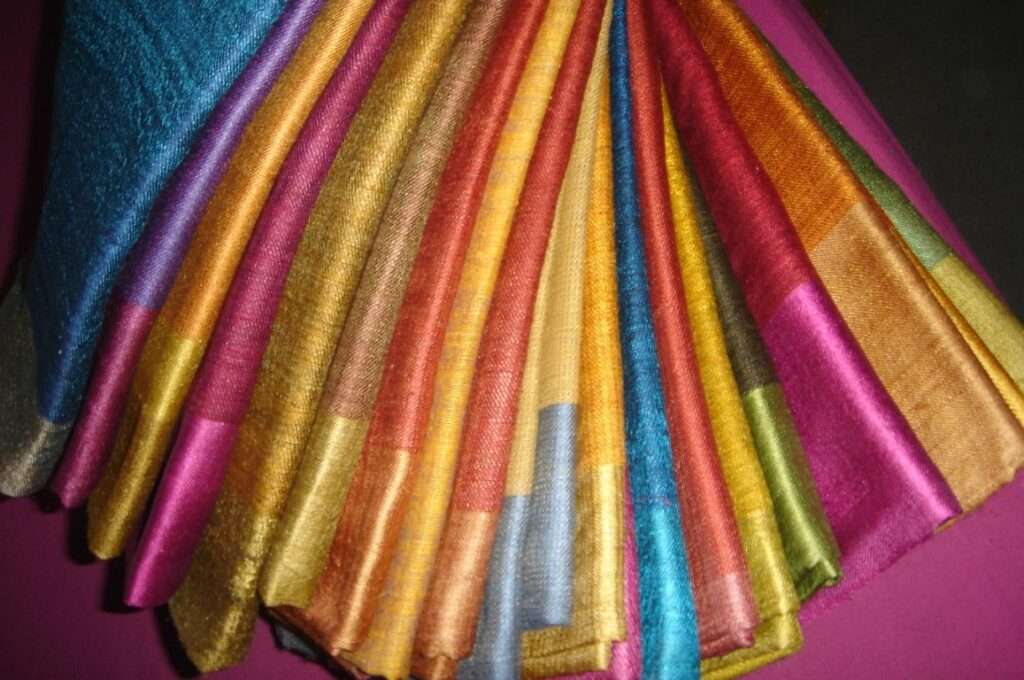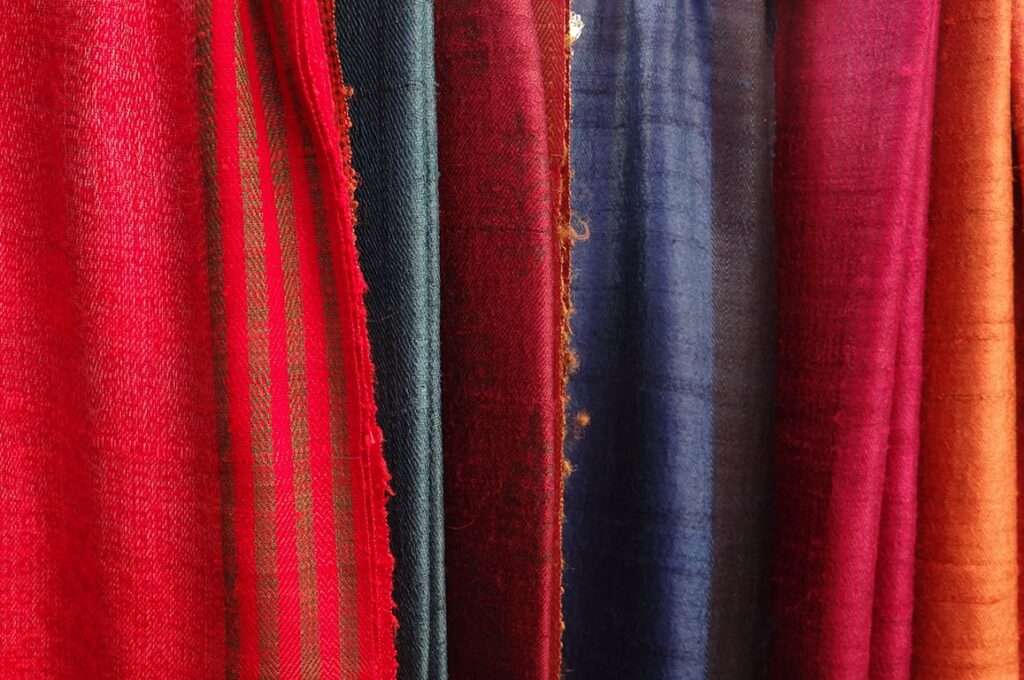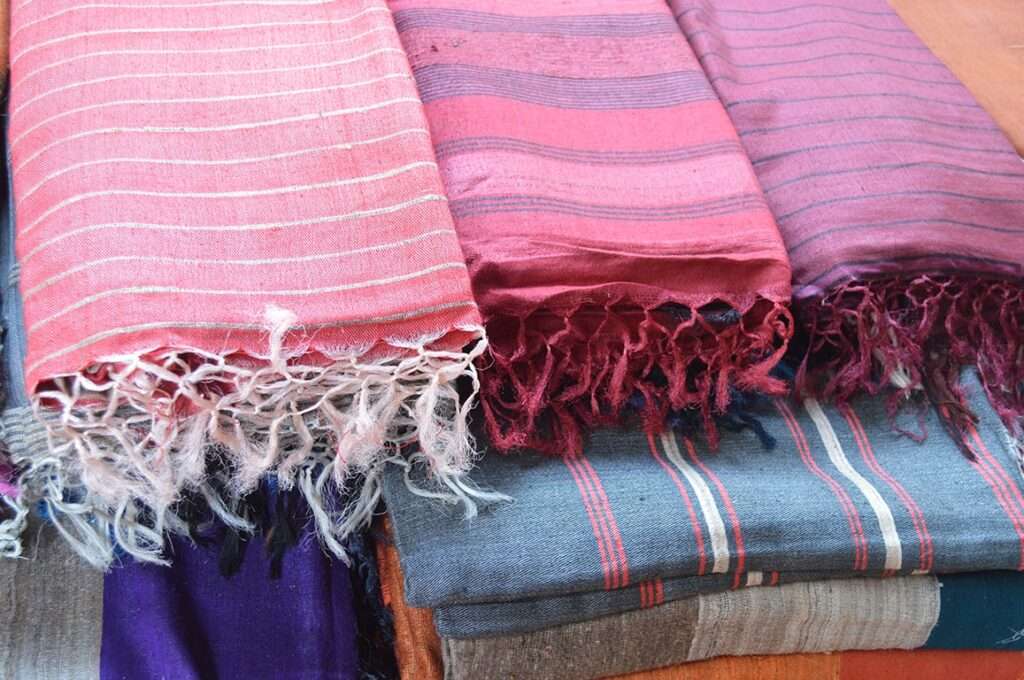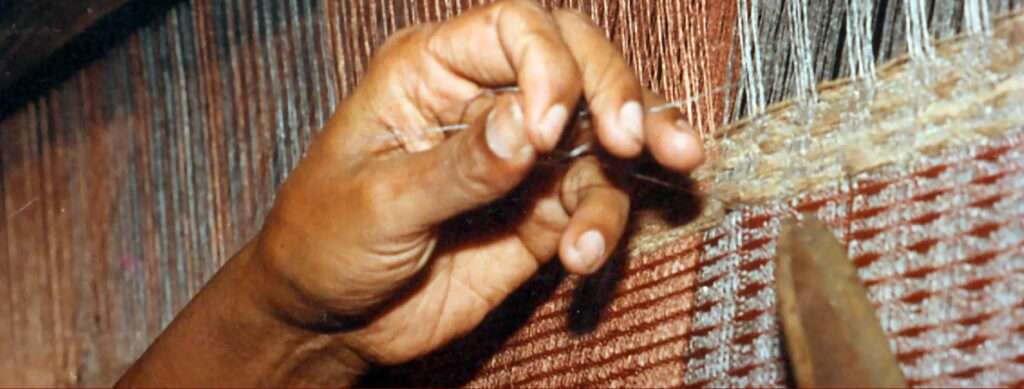
berozgar mahila kalyan sanstha
Dastkar, in 1993, provided the initial financial assistance to free 75 bonded tribal women In the Godda district of Bihar. This group of women then formed BMKS, a tussar-spinning and weaving craftgroup.
One of Dastkar’s goals was to create a self-sustaining, viable producer group by encouraging it to market directly and not depend on subsidised craft. Through constant inputs of design, innovative weaving techniques and encouragement in the use of natural colours through vegetable dyeing and colour-fastness workshops, Dastkar ensured that the end product was competitive.
At one point a severe resource crunch prevented BMKS from achieving full production and immediate marketing support was needed to help the project remain economically viable. Dastkar organised financial support in the form of a one-time revolving capital grant for raw materials and wages and assisted the group in design and skill upgradation, development of a new product range and with marketing through Dastkar Bazaars and Exhibitions.
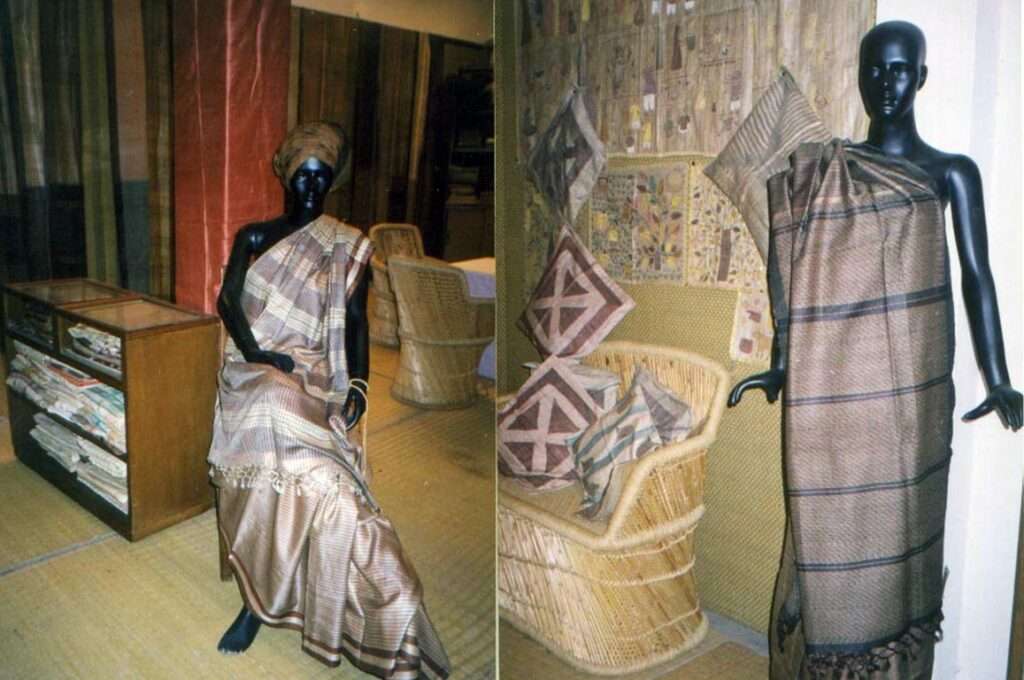
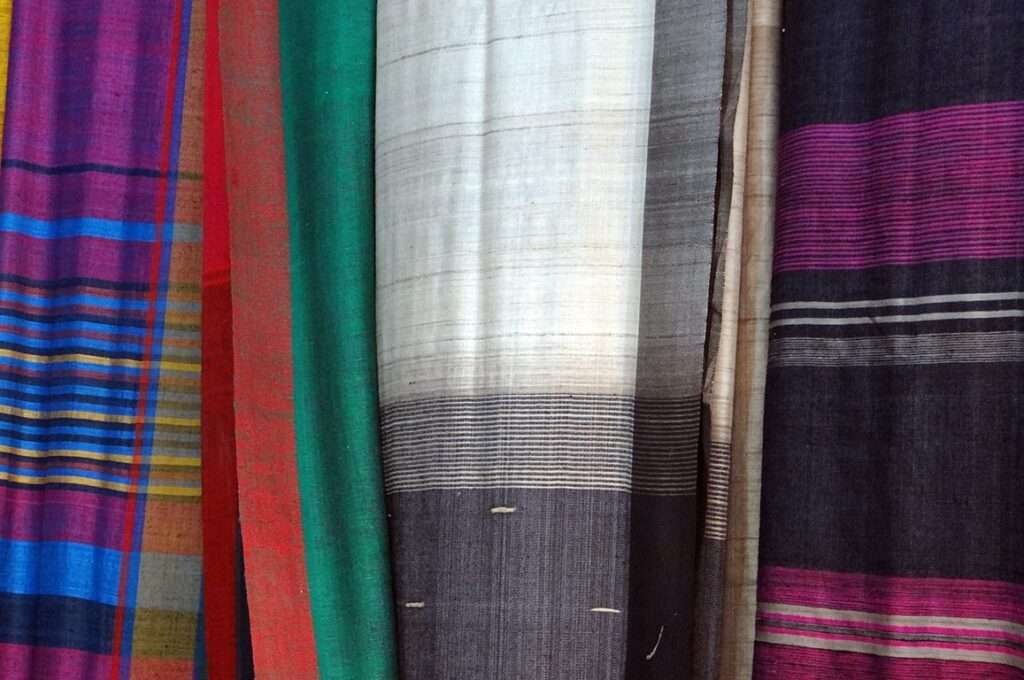
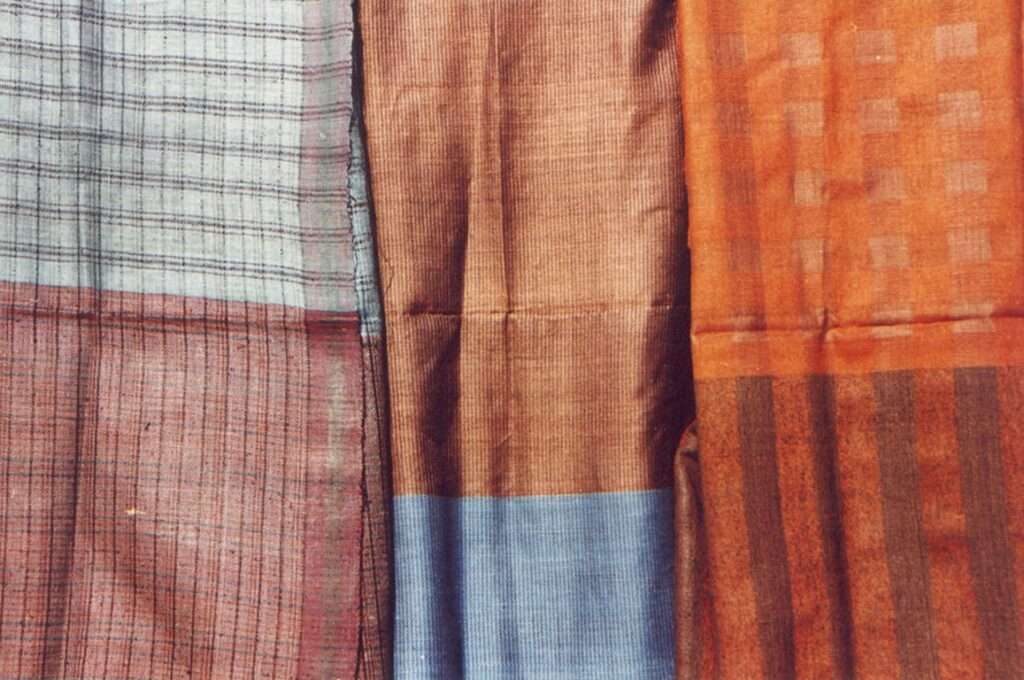
Tussar is now perceived as a premium product and BMKS sales have gone up by more than 500% since its inception. Between 2000 and 2010 BMKS sales through participation in Dastkar Bazaars alone went from Rs.9.7 lakhs to Rs.38.7 lakhs! In recent years BMKS has regularly had a total annual turnover of over Rs.1crore. This does not include any government assistance and the money helps in providing training to more tribal craftswomen.
From its start with 75 craftswomen, now BMKS comprises approximately 500 members, of which 400 are women. The organisation provides work to 3250 craftsmen and craftswomen; a total of 4000 people indirectly benefit from this economic activity.
Today, this craftgroup provides tussar fabrics and yarns to craft producers all over India within the Dastkar network and through commercial traders.
